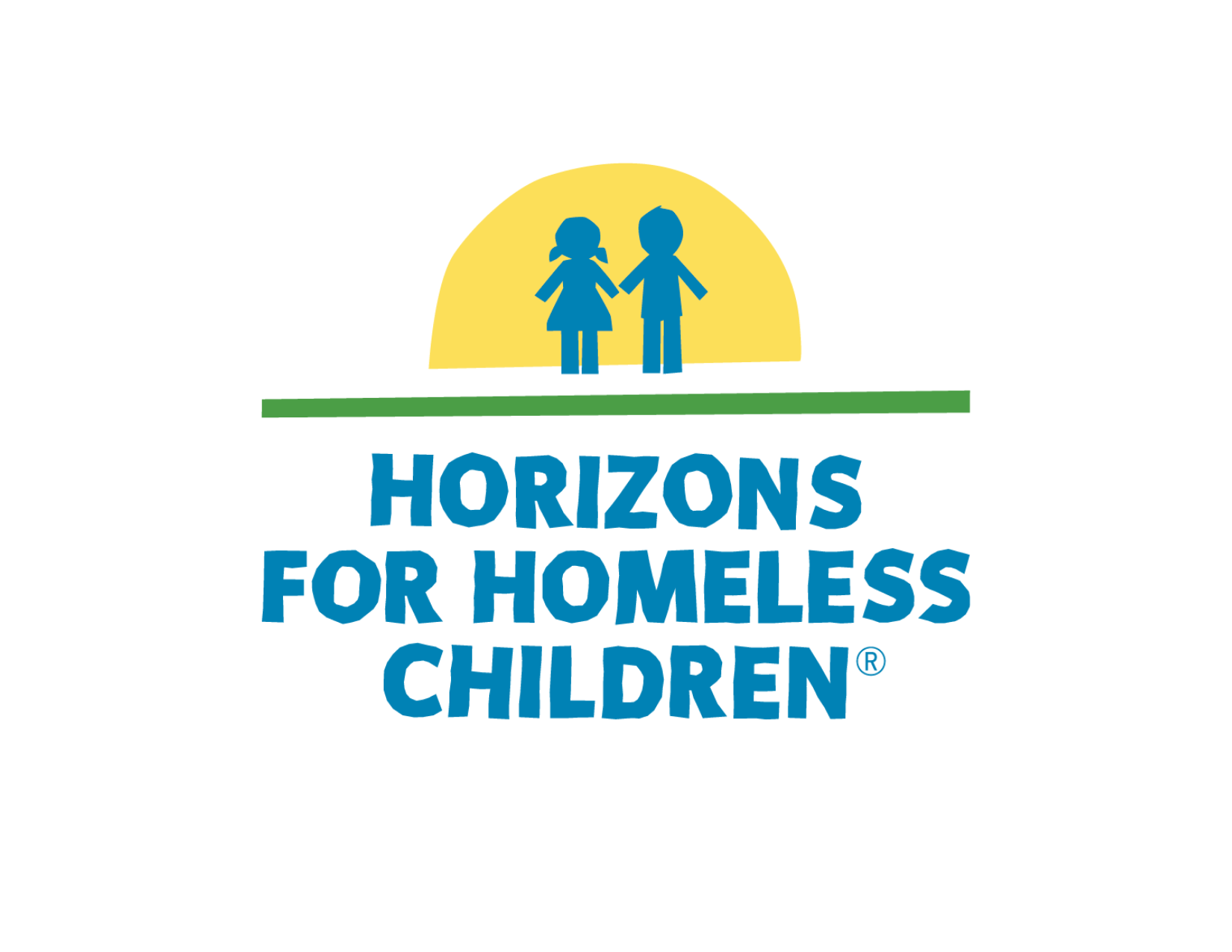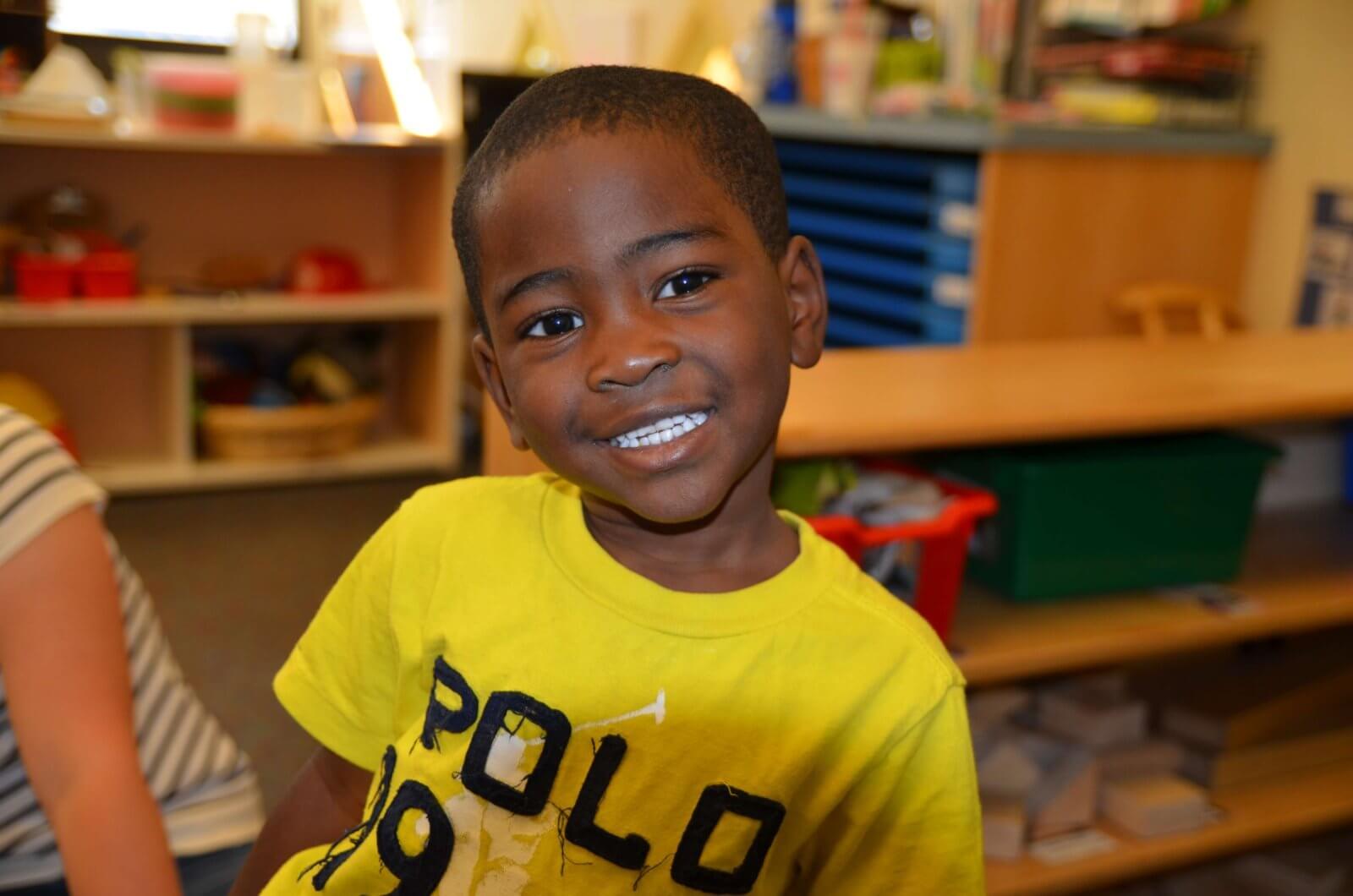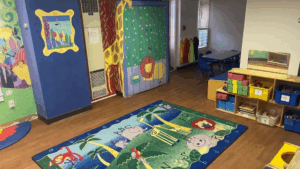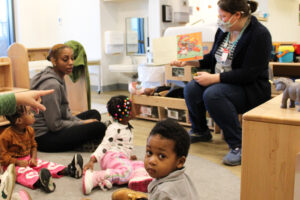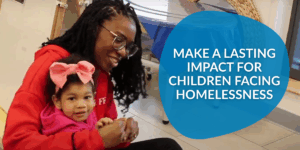Embracing Touchpoints at Horizons
At Horizons, we are continually finding ways to increase the positive impact we have on families, which often begins by equipping our staff with tools to help them do their work at the very highest level. That philosophy is how Horizons began its partnership with the Brazelton Touchpoints Center, a collaboration that has proven beneficial not only for our staff but for the families we have the privilege to serve.
The Brazelton Touchpoints Center is based at Boston Children’s Hospital and focuses on developing and applying knowledge of early childhood development to practice and policy through professional and organizational development, evaluation, advocacy ,and awareness and serving as a resource for proven practices. Touchpoints is an evidence-based theory of child development that refers to a transitional time in a child’s life when they learn a new skill. Rooted in the idea that development is not linear, Touchpoints operates on the notion that as a child learns a new skill, other skills may regress. For instance, a child may have started to sleep through the night; however as the child learns to walk ,their sleep may be disrupted by his or her need to continue practicing this skill. Touchpoints in the early stages of a child’s life can be frustrating for parents. A child sleeping less can create disorganization within the family by disrupting the existing routine, which may lead a parent to experience confusion and self-doubt as she/he tries to make meaning of the behavior. Confusion can turn to frustration as the parent tries to understand the regression, making a skilled teacher’s presence essential in to helping guide the family on this developmental journey.
The Brazleton Touchpoints Training teaches that the natural emergence of Touchpoints gives a provider the chance to strengthen the relationship with the parent. Although Touchpoints can create disruption within a family, it provides an opportunity for providers to meaningfully connect with parents and help reinforce the relationship between parent and child. That relationship, of a stable, caring and supportive adult caregiver with the child has direct impacts on the child’s lifelong success. Touchpoints demonstrates Horizons’ commitment to fostering that relationship.
Brazleton Touchpoints uses Guiding Principles, and Parent and Provider Assumptions to help providers work with parents through these Touchpoints. The Guiding Principles are strengths based strategies that help to chart a path to more mindful and empowering provider/parent interactions. Open communication, which includes listening to hear, is the basis for creating the most collaborative relationship between parent and provider.
Providers are also able to share guiding principles with parents and model their use in order to support parental mastery. Parent and provider assumptions are the perspectives that providers and parents are asked to step into. For example, if a provider chooses to employ the assumption that “all parents have strengths” then the provider is more apt to work with a parent from a strengths based perspective, even when it feels contrary to the experience the provider is having with the parent. Essentially, assumptions ask providers to draw positive conclusions about a person, rather than negative. In just over a year since the first Touchpoints training began, guiding principles are already transforming the way the team thinks about and interacts with parents.
We’re excited to share a few examples to illustrate how Touchpoints is connecting with the work Horizons staff are doing:
Hear how Shavon and team were able to “value passion where you find it” and effectively use intentional word choices and actions to build open communication between parent and childcare providers. By making a choice to lead with a positive parent assumption, both the director and teacher involved were able to engage with the parent in a way that created stronger insight, understanding and more opportunity for the parent to demonstrate her individual strengths.
[su_youtube url=”https://www.youtube.com/watch?v=xe15-FQ7uM4″ width=”300″ height=”200″ autoplay=”yes”]
Tashiani Brito, our Roxbury lead Preschool teacher shared a story in her own words about an experience in her classroom:
“A little boy in my classroom came to school. Before he even had his coat off, he grabbed a small container of cereal that he knew we’d be serving for breakfast. He opened the package and as he did, some of it spilled on the floor. His mother got upset with him because the clean-up would make her late for work again. The look on the little boy’s face went from a proud smile to a frown in an instant. When I saw the look on his little face change and his mother’s reaction, I realized that he was trying to show his mother that he knew how to open the cereal by himself. I took the opportunity to diffuse the situation by saying to the child, “Oh, you were trying to show Mommy that you knew how to open the cereal up all by yourself, weren’t you?” That stopped his mom in her tracks, now that she could see his intent was to please and demonstrate his new skill, not sabotage her. Both child and mom were happy by the end of the interaction. I told the child that mommy had to go to work because she was running late and he went to the window and waved goodbye. Mom left feeling good and all I did was use the child’s behavior as my language.”
In using the child’s behavior as her language, Tashiani acknowledged the disorganization to the routine due resulting from the child’s attempts to master his new skill and the frustration it caused his mom. By leading with the parent assumptions and utilizing guiding principles, she was able to value mom’s passion to arrive to work on time while still managing to open the space for connection around the child’s learning journey.
Hear how Deneen used a situation in the classroom as an opportunity to support parental mastery while reinforcing the parent-child relationship.
[su_youtube url=”https://www.youtube.com/watch?v=qN2j7kYCpNI” width=”300″ height=”200″ autoplay=”yes”]
Touchpoints isn’t only useful in Horizons’ classrooms, it’s being used in the Playspace program as well. Lynne Gaines, Playspace Director for Greater Boston, shared her experience when encouraging parent-PAL communication.
“Although our PALs spend the majority of their shift playing with the children there can be interaction with family members, especially during pick-up. During that time we encourage PALs to share with the parent what the child did that day. Many times an observation such as ‘your child rolled over today, she hasn’t done that before,’ or ‘your child stacked twelve blocks all by himself,’ can be beneficial for a parent to hear. For families going through such a challenging time positive reinforcement can make a huge difference. In that way, our PALs go beyond their traditional roles and are able to make meaningful connections with parents.”
These examples capture how operating from a lens of positivity and empathy has strengthened the work our staff do to build productive and successful relationships with our families.
This post was written by Rachel San Giacomo, a regular contributor to Horizons’ blo.g
